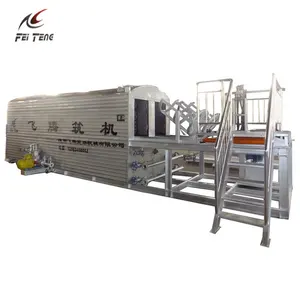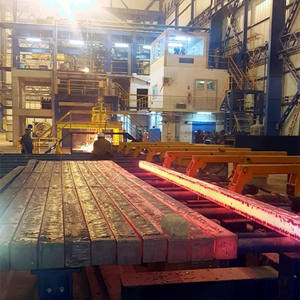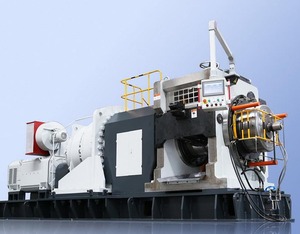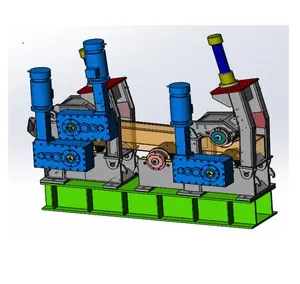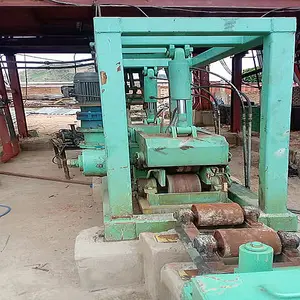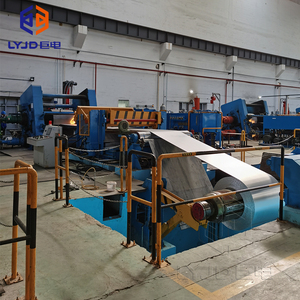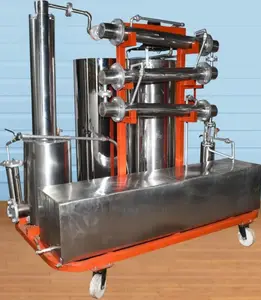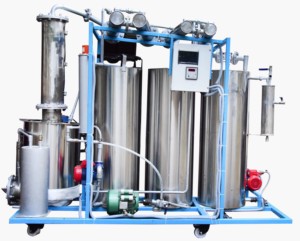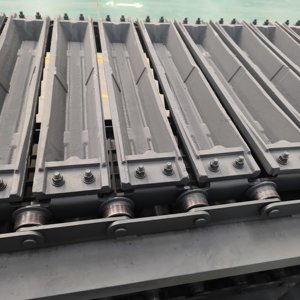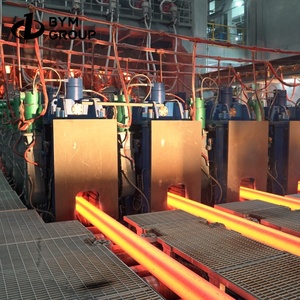Define Continuous Production


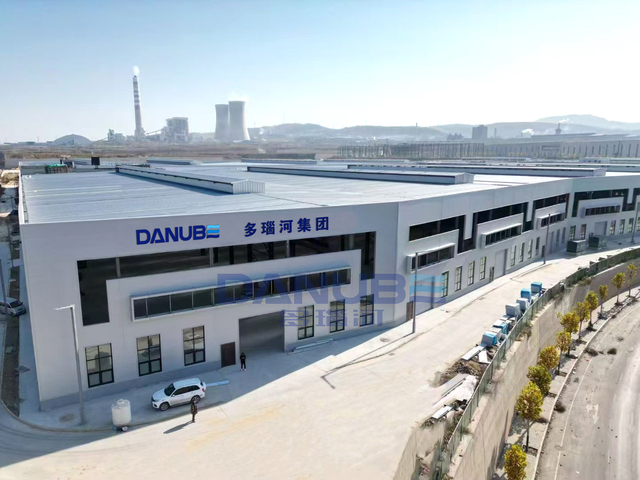


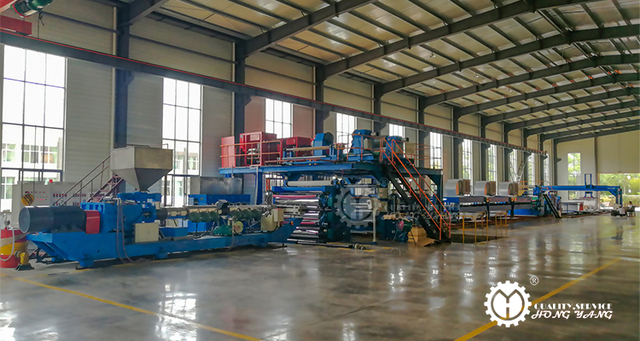




 1/13
1/13











 1/11
1/11





About define continuous production
Where to Find Continuous Production Equipment Suppliers?
China remains the global epicenter for continuous production machinery manufacturing, with key industrial hubs in Henan, Shandong, and Guangdong provinces driving innovation and scale. Henan specializes in chemical and waste-to-resource processing lines, hosting over 70% of China’s biochar and oil refinery system suppliers. The region benefits from integrated metallurgical and mechanical engineering clusters, enabling localized sourcing of pressure vessels, heat exchangers, and automation components—reducing lead times by up to 25%. Shandong focuses on heavy-duty metal processing systems, including copper rod casting and steel plate coating lines, leveraging proximity to raw material suppliers and deep-sea ports for efficient export logistics.
These manufacturing zones support vertically integrated operations, combining R&D, fabrication, assembly, and testing under one ecosystem. Suppliers typically operate facilities exceeding 5,000m² with dedicated pilot plants for process validation. Buyers gain access to scalable production capacity, with standard lead times ranging from 45 to 60 days for complex continuous systems. Cost advantages are significant—localized supply chains reduce equipment pricing by 20–35% compared to European or North American manufacturers, while maintaining compliance with international safety and performance benchmarks.
How to Choose Continuous Production Equipment Suppliers?
Procurement decisions should be guided by rigorous technical and operational assessments:
Technical Compliance & Process Validation
Require ISO 9001 certification as a baseline for quality management. For export markets, confirm CE or equivalent regulatory compliance for electrical controls, pressure systems, and emissions handling. Request detailed process flow diagrams (PFDs) and piping & instrumentation diagrams (P&IDs) for customized systems. Validate thermal efficiency ratings, residence time control, and automation integration capabilities—especially for pyrolysis, carbonization, or distillation applications.
Production Infrastructure Assessment
Evaluate supplier capability through objective metrics:
- Minimum factory area of 3,000m² to support full-line assembly
- In-house engineering team (minimum 8+ personnel) for custom design and commissioning
- On-site CNC machining, welding, and PLC programming capabilities
Cross-reference delivery performance (target ≥98% on-time rate) with response time (ideally ≤2 hours) to assess operational responsiveness and project management rigor.
Transaction Security & After-Sales Support
Utilize secure payment mechanisms such as letter of credit or third-party escrow until site acceptance testing is completed. Prioritize suppliers offering turnkey services—including installation supervision, operator training, and remote diagnostics. Review after-sales response records and verify spare parts availability for critical components like rotary kilns, condensers, and vacuum pumps.
What Are the Best Continuous Production Equipment Suppliers?
| Company Name | Main Products | Price Range (USD) | Min. Order | Response Time | On-Time Delivery | Key Capabilities |
|---|---|---|---|---|---|---|
| DANUBE MACHINERY EQUIPMENT (SINGAPORE) PTE. LTD. | Biochar Pyrolysis Machines, Carbonization Furnaces, Briquette Lines | $25,000–48,000 | 1 set | ≤2h | Not specified | Turnkey biomass conversion systems; modular designs for agricultural waste; automated feeding and ash removal |
| Foshan Fanshun Machinery Co., Ltd. | Oxygen-Free Copper Rod Lines, Copper Strip Casting Systems | $100,000–130,000 | 1 acre | ≤2h | 100% | Upward continuous casting technology; high-purity metal processing; integrated cooling and winding systems |
| DANUBE MACHINERY EQUIPMENT SINGAPORE PTE LTD | Industrial Carbonization Furnaces, Biochar Plants, Waste Treatment Systems | $20,000–128,000 | 1 set | ≤7h | Not specified | Multi-feedstock compatibility (palm shell, wood, husk); continuous carbonization with gas recycling; turnkey plant installation |
| Henan Qingzhan Industrial Co., Ltd. | Diesel Refinery Units, Vacuum Oil Distillation Plants, Pyrolysis Oil Processing | $50,000–55,000 | 1 set | ≤7h | 100% | Continuous feedstock processing; closed-loop vacuum systems; automated temperature and pressure control |
| Dezhou Feiteng Road Construction Equipment Co., Ltd. | Bitumen Modifiers, Hot Oil Heating Systems, Corrosion-Resistant Steel Coating Lines | $32,300–200,000 | 1 set | ≤1h | 100% | High-temperature continuous reactors; PLC-integrated heating control; corrosion-resistant lining technologies |
Performance Analysis
Foshan Fanshun and Dezhou Feiteng demonstrate strong reliability with 100% on-time delivery and rapid response times, making them suitable for mission-critical installations. Foshan Fanshun excels in non-ferrous metal continuous casting, offering high-capacity oxygen-free copper production lines essential for electrical conductor manufacturing. Dezhou Feiteng provides niche expertise in continuous bitumen modification and steel protection systems, with scalable designs adaptable to petrochemical and infrastructure sectors. Danube Machinery presents competitive entry-level biochar solutions, though response delays suggest potential bottlenecks in customer service. Henan Qingzhan delivers robust oil refining systems with proven performance in waste-to-fuel applications, backed by full automation and safety interlocks.
FAQs
How to verify continuous production equipment supplier reliability?
Audit suppliers using third-party inspection services to validate factory conditions, equipment testing procedures, and material traceability. Confirm adherence to ASME, PED, or local pressure vessel codes where applicable. Request references from existing clients operating similar process lines.
What is the typical minimum order quantity (MOQ)?
Most suppliers require a single system set as MOQ, particularly for large-scale continuous production units. Some metal processing lines may be quoted per production line footprint (e.g., "per acre" basis), reflecting space and utility requirements.
Can suppliers customize continuous production systems?
Yes, leading manufacturers offer full customization including feedstock adaptation, throughput scaling (500kg–10MT/hour), emission control integration, and SCADA-based monitoring. Provide detailed process specifications—such as desired yield, residence time, and output purity—for accurate engineering proposals.
What are common lead times for continuous production machinery?
Standard systems ship within 45–60 days after order confirmation. Custom-engineered lines, especially those requiring third-party component integration (e.g., turbo blowers, cyclones), may require 75–90 days. Expedited timelines are possible with premium fees.
Do suppliers provide installation and commissioning support?
Reputable suppliers offer overseas technical support, including site planning, equipment erection, trial runs, and staff training. Costs vary based on project scope and duration—typically billed as a separate service package or included in turnkey contracts.
























